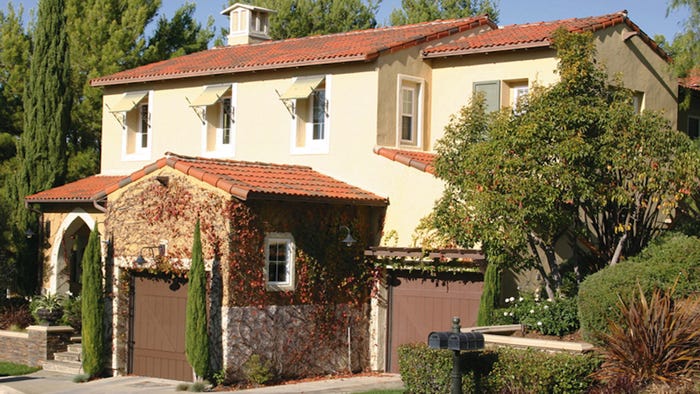Leverage Training and Teamwork to Support Your Roofing Clients
Virginia Harbeck, owner and CEO of Harbeck Roofing and Remodeling, shares her insights on making the most of industry groups, approaching your job with a learning-first mindset, and how to run an impactful roofing business through even the most challenging times.

For this edition of the Fast 5—a Q&A series spotlighting the insights and expertise of construction industry experts—we spoke with Harbeck Roofing and Remodeling Owner and CEO Virginia Harbeck on the value of industry groups, running a business with a learning-centric mindset, and the role the roofing industry must play in educating homeowners.

Ben and Virginia Harbeck co-founded Harbeck Roofing & Remodeling in April 2020. After Ben passed away in May 2021, Virginia took over business operations of the 100% woman-owned business, backed by a highly qualified and experienced team.
You’re an active member of a number of professional and industry associations. What is the biggest value you’ve found in these memberships, and what would you tell someone considering an association membership who may still be on the fence about making the commitment?
Harbeck: The biggest value that I have found in these associations is the networking aspect. Most of the professional and industry associations of which I’m a member offer webinars, conferences or training of some type. It's a great way to stay on top of the latest trends and changes while also meeting new, like-minded people to grow your network and find mentors. I’ve been fortunate to meet people from all over the country who are happy to talk through new ideas with me. I would tell someone considering membership that meeting more people in the industry is always helpful in growing in your career, and we’re all glad to help.
How did you and your late husband Ben decide to take the plunge and start your company?
Harbeck: Consumers have consistently ranked roofers as one of the least trustworthy types of businesses. Ben had a lot of experience with business owners who didn’t run their companies with the type of integrity that we felt homeowners deserved. We knew that we could treat customers better and provide a better quality of work and service, so we started our company. It turned out to be one of the best decisions we made.
How do you overcome the learning curve that comes with transitioning to being the sole owner of a successful company?
Harbeck: When Ben died, we had been running our business together for a year. Transitioning to being the sole owner of a company after the sudden death of my husband—while I was 6 months pregnant with our youngest daughter—was extremely difficult. I would not have been able to keep the company going without the team we had built together. I am so fortunate to have a core group of Harbeck colleagues who I trust completely and who share the same values and vision for the company as I do.
I came from a communications and business background, so while I ran the business side of things, Ben was running the daily operations. I had learned quite a bit about roofing during our first year in business, but I’ve spent the past 15 months attending every possible training to learn as much as I can about roofing and its intricacies. I know that there is always something more to learn and constantly educating myself about the roofing industry has been instrumental in running a successful roofing company.
What led Harbeck to decide to offer a complimentary lifetime warranty on all of its roofs?
Harbeck: We decided to offer a complimentary lifetime workmanship warranty on all of our roofs because we stand behind the quality of our work. We can’t expect homeowners to trust us to work on their homes if we’re not willing to accept responsibility if we make a mistake. When we started the company, it was very important to us to be able to offer the highest quality of work and service.
We’ve had very few warranty issues because we only hire highly qualified roofers who exhibit deep attention to detail. We may be more expensive than some other companies, but we pay our crews more to get that level of expectational workmanship. Our customers don’t mind paying a little more for a quality product they know will last.
How do you use your formal training as a communications professional in your daily role?
Harbeck: My training in communications has been very helpful in my role. The average homeowner doesn't know a lot about roofs or the replacement process, and it’s our job as an industry to educate them about their home. I do a lot of TV interviews and write articles and blog posts for our website that seek to educate homeowners on what to look for on their home and what to expect from us.
When people are able to understand what is going on with their home and can make informed decisions, they are a lot more comfortable making that initial call for us to come out and take a look at their roof.
Bonus question: What’s your favorite way to spend your downtime?
Harbeck: I have two daughters (age 1 and almost 4) and two black labs that take up most of my free time, but I love it! Along with that, I was born and raised a Texas Longhorn and went to the University of Texas for college, so I enjoy spending every Saturday during football season watching the games with my little girls!
Click here for more from the Fast 5 series.
Read more about:
Fast 5About the Author(s)
You May Also Like




